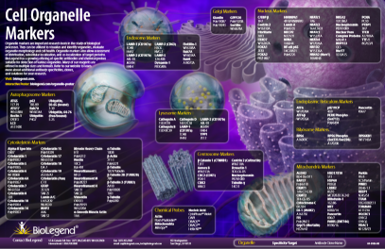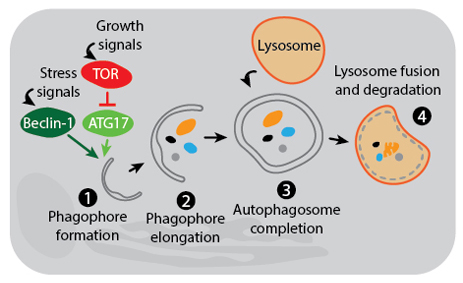 |
| Plaque formation in Alzheimer’s disease can be preceded by lysosome failure in brain cells. A new study by T. Lambeth, et al., finds that long-lived β-Amyloid (Aβ) and Tau peptides are susceptible to isomerization, which makes them resistant to degradation by lysosomal enzymes and therefore toxic to cells. Treatments targeting lysosomal function are being actively developed for Parkinson’s disease – could these therapies also prove beneficial for Alzheimer’s? Advance Alzheimer’s research and treatment with BioLegend’s tools for studying protein aggregation, organelle biology, and autophagy. |
 |
 |
Use our new cell organelles poster to identify markers of lysosomes, autophagosomes, mitochondria, and other components involved in Alzheimer’s disease. Then browse reagents to study their biology, such as antibodies for lysosomal markers CD107a and Cathepsin.
 |
 |
| Interested in studying various modifications and forms of proteins associated with Alzheimer’s disease? Detect cleavage fragments, phosphorylation, and aggregation with antibody sampler kits: economical sets of antibodies that allow you to explore multiple aspects of Alzheimer’s disease. |
|
 |
Autophagy directs the lysosomal digestion of toxic protein aggregates that cause neurodegenerative disease. Explore the pathways and mechanisms of autophagy with our webpage and poster, and discover BioLegend’s tools for autophagy research.
 |
 |
 |
*Any references to promotions on this page may not be valid at this time. View our promotions page for the most up-to-date promotions.
 Login / Register
Login / Register 








Follow Us